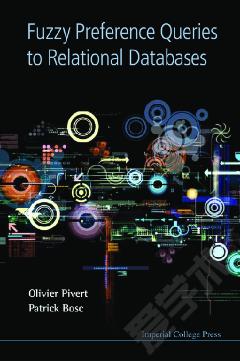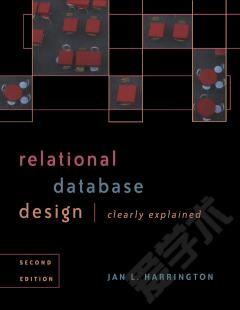Fuzzy Preference Queries To Relational Databases
The manipulation of databases is an integral part of a world which is becoming increasingly and pervasively information-focused. This book puts forward a suggestion to advocate preference queries and fuzzy sets as a central concern in database queries and offers an important contribution to the design of intelligent information systems. It provides a comprehensive study on fuzzy preference queries in the context of relational databases. Preference queries, a recent hot topic in database research, provide a basis for rank-ordering the items retrieved, which is especially valuable for large sets of answers.This book aims to show that fuzzy set theory constitutes a highly expressive framework for modeling preference queries. It presents a study of the algorithmic aspects related to the evaluation of such queries in order to demonstrate that this framework offers a good trade-off between expressivity and efficiency. Numerous examples and proofs are liberally and lucidly demonstrated throughout, and greatly enhance the detailed theoretical aspects explored in the book.Researchers working in databases will greatly benefit from this comprehensive and up-to-date study of fuzzy preference queries, and it will also become an invaluable reference point for postgraduate students interested in advanced database techniques.The only other books which deal with this topic are edited books or conference proceedings which include a few contributions about some specific aspects of the question. This book provides a comprehensive view of the issue, starting with basic notions related to relational databases and fuzzy set theory, up to the detailed study of complex fuzzy queries and the way they can be efficiently processed. It is the compendium of more than 20 years of research by the authors who benefit from a great international recognition in the domain of intelligent information systems, on the subject.
{{comment.content}}








 京公网安备 11010802027623号
京公网安备 11010802027623号